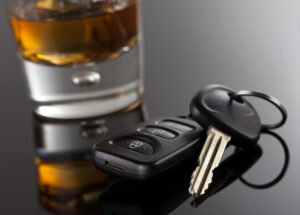Do You Need Legal Help?

"Deandra Grant Law fights hard for their clients and is always willing to go above and beyond. They are the best firm for DWI cases in DFW and beyond. Definitely hire them to represent you in any pending cases."
- P. Williams

"Deandra Grant made a tough situation so much better. She listened to my concerns and helped me so much with my case. I would recommend her to anyone needing legal services."
- M. Haley

"Deandra Grant Law handled my case with diligence and professionalism. Deandra Grant's reputation is stellar and now I know why. She has a team of individuals who provide quality service."
- N. Coulter
As Seen On





A Fighting Team On Your Side
Since 1994 when our doors opened, Deandra Grant Law has helped thousands of clients get their DWI charges reduced or dismissed. We're ready to fight on your behalf.

Managing Partner
Partner & Criminal Division Chief
Criminal Division Senior Associate
Criminal Division DWI Trial Chief
Immigration Division Chief & Criminal Division Deputy Chief
Criminal Division Associate

Texas DWI Manual
By Attorney Deandra Grant
Fighting DWI charges can present many challenges, not only for the defense, but prosecutors as well. This is why it is important to be armed with the necessary knowledge so you understand the DWI process.
Attorney Deandra M. Grant is the co-author of the Texas DWI Manual, offering legal advice to both clients and fellow attorneys. Fighting DWI charges can present may challenges, not only for the defense, but prosecutors as well. This is why it is important to be armed with the necessary knowledge so that you understand the DWI criminal process.
Learn MoreBlood Alcohol Concentration (BAC)
Understanding Alcohol Concentration in Your DWI Case: Beyond the Acronyms
When it comes to your DWI case, the term “alcohol concentration” might become a familiar refrain. Also known as BrAC (Breath Alcohol Concentration) or BAC (Blood Alcohol Concentration), it’s a crucial measurement that reflects the quantity of alcohol present in your body. Determining your alcohol concentration is often carried out through either a breath test or a blood test. While blood testing is commonly perceived as more accurate than breath testing, it’s important to recognize that both methods have their limitations, and false high readings can occur due to various errors or physical conditions.
The Role of Alcohol Concentration
Alcohol concentration serves as a pivotal factor in assessing impairment levels for individuals suspected of driving under the influence. The legal limit for alcohol concentration varies by jurisdiction, but it’s generally set at 0.08% BAC in many places, including Texas. If your alcohol concentration surpasses this threshold, you can be charged with DWI.
Breath Test vs. Blood Test
Breath tests and blood tests are the two primary methods used to determine alcohol concentration. Breath tests measure the alcohol content in your breath to estimate the alcohol concentration in your blood. Blood tests directly measure the alcohol concentration in your bloodstream. While blood tests are often deemed more accurate due to their direct measurement, both methods can be influenced by various factors, leading to potential inaccuracies.
Potential for Errors and Physical Factors
Both breath tests and blood tests can yield false high readings for a multitude of reasons. Technical errors during testing, calibration issues with equipment, or even certain medical conditions can all contribute to skewed results. The intricacies of your body’s metabolism, along with factors like diabetes or acid reflux, can also impact the accuracy of these tests.
Deandra Grant to Your Rescue
Texas DWI lawyer, Deandra M. Grant, of Deandra Grant Law is very familiar with alcohol concentration tests and how to challenge these tests in court and at ALR hearings. Attorney Grant has herself undergone extensive training in how to operate and maintain the Intoxilyzer 5000, the breath testing machine used in Texas. She has completed coursework in forensic blood and urine testing and obtained a certificate in Forensic Chromatography from the American Chemical Society and Axion Labs in Chicago, Ill. All of the knowledge and information that she has acquired in this field enables Attorney Grant to effectively evaluate the method of breath or blood testing that you underwent and challenge the results.
Can BAC Tests Truly Reflect the Whole Picture?
When facing the weight of severe consequences under Texas drunk driving laws, a pivotal question arises in the minds of judges and juries, shaping the path to your guilt or innocence:
Is it possible for BAC tests to be inaccurate?
The answer, unequivocally, is yes.
The reliability of blood alcohol concentration (BAC) tests, often administered during roadside stops, hangs in the balance. Unreliable results can stem from various factors, including undertrained officers and poorly maintained equipment.
Breathalyzers: Trustworthy or Not?
Frequently employed during these tests are breathalyzers, devices into which a suspect exhales to indicate their blood alcohol level. Yet, an investigative study by the New York Times raises skepticism about their credibility. The courts have discarded numerous BAC tests due to human error and inadequate oversight, questioning their reliability as evidence.
Underlying Factors Influencing Inaccuracy
Part of the problem lies within the equipment itself, used by officers on the roadside when apprehending suspected intoxicated drivers. Often, the equipment used for BAC testing has components with expiration dates. These components may have exceeded their expiration when the test was conducted.
Moreover, the majority of breathalyzers employ semiconductor sensors that utilize tin-oxide material, a cost-effective alternative to platinum fuel cell sensors. However, this choice comes at the price of accuracy, as it can lead to false positives triggered by external factors such as cigarette smoke or ambient chemicals like hair spray.
Even seemingly innocuous factors like breath fresheners, toothache medicines, and mouthwashes—containing alcohol—can skew BAC readings. Complicating matters further, the body’s ketones, generated during the breakdown of fat cells, share a chemical resemblance to alcohol.
BAC Test Inaccuracy Unveiled
Inaccuracies in BAC tests are multi-faceted. Software glitches, improper calibration, low battery levels, and human errors during the test’s execution can all contribute to unreliable results.
Given these intricacies, it’s imperative to have a seasoned DWI attorney by your side. At Deandra Grant Law, we dissect the evidence, challenge the methods, and craft a strategic defense that delves into the nuances surrounding BAC testing. We understand that one piece of evidence does not define your case—your entire story matters.
Related Blogs
Navigating the Threshold of DWI: Beyond the Numbers
When your BrAC (Breath Alcohol Concentration) or BAC (Blood Alcohol Concentration) registers at .08% or higher, you stand at the brink of DWI charges. This legal boundary signifies a level of alcohol in your system that is considered unlawful for operating a vehicle. But the nuances of DWI law in Texas extend beyond this numerical threshold.
The Power of .08%: DWI Charges Looming
A BrAC or BAC reading at .08% or greater triggers the potential for DWI charges. It’s a threshold that has been established to identify impaired driving and safeguard road safety. If your test results breach this limit, you may find yourself facing the legal consequences associated with DWI.
Beyond the Limit: Texas DWI Laws
In Texas, the scope of DWI charges reaches beyond the numerical limit. Even if your BrAC or BAC falls below .08%, you can still face DWI charges if the arresting officer believes your physical and/or mental faculties are compromised due to alcohol or drug consumption. This means that your abilities to drive safely may be impaired even if your test results seem to suggest otherwise.
Elevate Your Defense: Deandra Grant Law
When facing DWI charges, it’s vital to remember that numbers alone don’t dictate your fate. At Deandra Grant Law, we refuse to accept substandard representation for our clients. We understand the complexities surrounding DWI cases and are dedicated to providing you with aggressive and unwavering representation.
Challenge the Results, Protect Your Future
Having a breath or blood test that indicates a BrAC or BAC reading above the legal limit doesn’t equate to an inevitable conviction. These results can be influenced by various factors, and the accuracy of tests may be challenged. Our firm is committed to meticulously examining the evidence, questioning the methods, and building a robust defense strategy tailored to your case.
Secure Your Defense Today
If you’re facing DWI charges in Texas or the surrounding areas, you deserve a fierce advocate in your corner. Deandra Grant Law stands ready to fight for your rights, challenge the evidence, and guide you through the legal process. Contact us today for dedicated representation that aims to secure a positive outcome for your case. Your future is worth safeguarding, and we’re here to help you do just that.
Contact Texas attorney, Deandra Grant, today to see how she can challenge your breath or blood alcohol concentration test results and fight your DWI charges.
Client Reviews
![]()
“Deandra Grant Law handled my case with diligence and professionalism. Deandra Grant’s reputation is stellar and now I know why. She has a team of individuals who provide quality service.”













